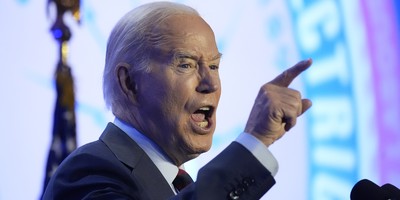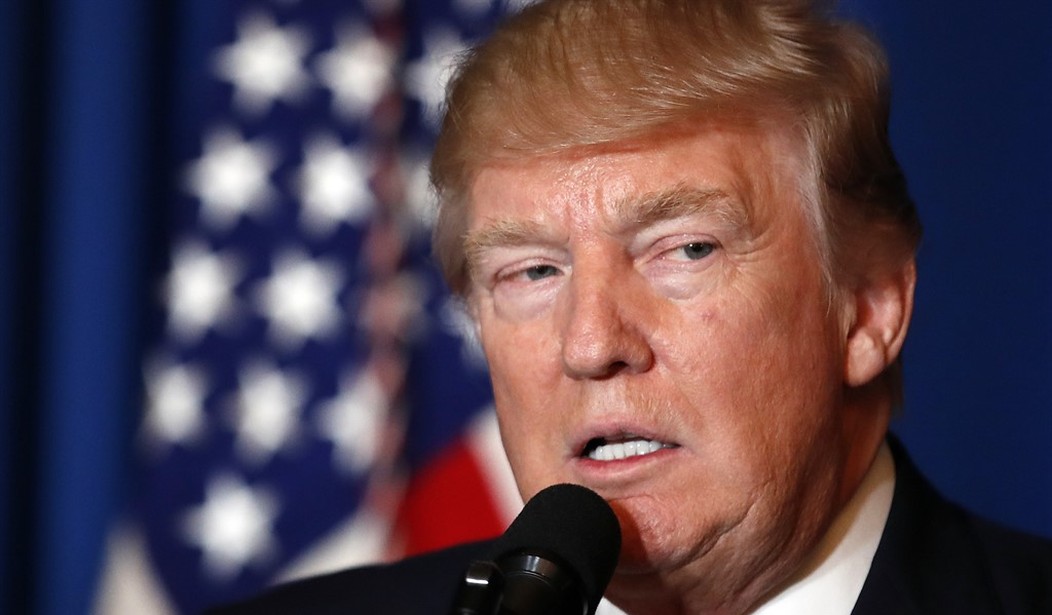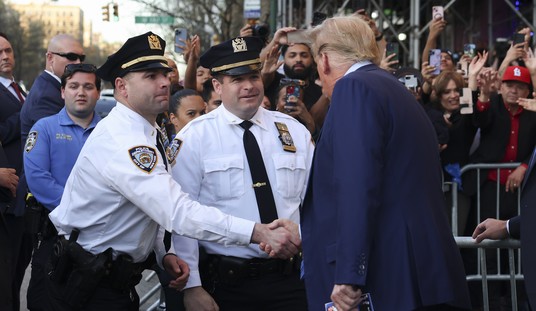History repeats itself, first as tragedy, then as farce, said Marx.
On publication day of my memoir of Richard Nixon's White House, President Trump fired FBI Director James Comey. Instantly, the media cried "Nixonian," comparing it to the 1973 Saturday Night Massacre.
Yet, the differences are stark.
The resignations of Attorney General Elliot Richardson and Deputy Attorney General Bill Ruckelshaus and the firing of Special Prosecutor Archibald Cox came in the middle of an East-West crisis.
On Oct. 6, 1973, the high holy day of Yom Kippur, in a surprise attack, Egyptian troops crossed the Suez Canal and breached Israel's Bar Lev Line. Syria attacked the Golan Heights.
Within days, 1,000 Israeli soldiers were dead, hundreds of tanks destroyed, dozens of planes downed by Soviet surface-to-air missiles. As Egypt's army broke through in the Sinai, there came reports that Moshe Dayan was arming Israeli F-4s with nuclear weapons.
"This is the end of the Third Temple," Dayan was quoted.
Nixon ordered every U.S. transport that could fly to deliver tanks and planes to Israel. Gen. Ariel Sharon crossed the Canal to the west and rolled north to cut off and kill the Egyptian 3rd army in Sinai.
The Gulf Arabs declared an oil embargo of the United States.
We got reports that nuclear-capable Russian ships were moving through the Dardanelles and Soviet airborne divisions were moving to airfields. U.S. nuclear forces were put on heightened alert.
On Oct. 10, another blow had befallen Nixon's White House. Vice President Agnew pleaded nolo contendere to tax evasion and resigned.
Recommended
Nixon immediately named Gerald Ford to replace him.
It was in this environment, with Henry Kissinger in Moscow trying to negotiate a ceasefire in the Mideast, that Cox refused to accept a compromise deal that would give him verified summaries of Nixon's tapes, but not actual tapes. Democrat Senators Sam Ervin and John Stennis had accepted this compromise, as had Richardson, or so we believed.
Nixon had no choice. As he told me, he could not, in this Cold War crisis, have Soviet Premier Leonid Brezhnev see him back down in the face of defiance by one of his own Cabinet appointees.
If he had to, Nixon told me, he would reach down to a GS-7 at Justice to fire Cox: "We can't have that viper sleeping in the bed with us."
That Saturday night, I told friends, next week will bring resolutions of impeachment in the House. And so it did.
How do Nixon and Trump's actions differ?
Where Nixon decapitated his Justice Department and shut down the special prosecutor's office, Trump simply fired an FBI director who agreed that Trump had every right to do so.
By October 1973, with two dozen Nixon White House, Cabinet and campaign officers convicted or facing indictment and trial, we were steeped in the worst political scandal in U.S. history.
Nothing comparable exists today.
But if President Trump is enraged, he has every right to be.
Since July, the FBI has been investigating alleged Trump campaign collusion with Putin's Russia to hack the DNC and John Podesta's email accounts -- and produced zilch. As of January, ex-CIA Director Mike Morell and ex-DNI James Clapper said no collusion had been found.
Yet every day we hear Democrats and the media bray about a Putin-Trump connection and Russian "control" of the president.
In the early 1950s, they had a term for this. It was called McCarthyism, and its greatest practitioners invariably turned out to be those who had invented the term.
"Justice delayed is justice denied!" applies to presidents, too.
Trump has been under a cloud of a "Russian connection" to him and his campaign for nearly a year. Yet no hard evidence of Trump-Russia collusion in the election has been produced.
Is not the endless airing of unproven allegations inherently un-American?
In 1973, NBC's John Chancellor suggested the ouster of Richardson, Ruckelshaus and Cox was the "most serious constitutional crisis" in U.S. history, passing over the secession of 11 Southern states and a Civil War that cost 620,000 lives. One London reporter said that "the whiff of the Gestapo was in the clear October air."
We see a similar hysteria rising today.
Yet that was not a constitutional crisis then, and the mandated early retirement of Jim Comey is not a constitutional crisis now.
And that the mainstream media are equating "Russia-gate" and Watergate tells you what is afoot.
Trump is hated by this city, which gave him 4 percent of its votes, as much as Nixon was. And the deep-state determination to bring him down is as great as it was with Nixon.
By 1968, the liberal establishment had lost the mandate it had held since 1933, but not lost its ability to wound and kill presidents.
Though Nixon won 49 states, that establishment took him down. Though Ronald Reagan won 49 states, that establishment almost took him down in the Iran-Contra affair.
And that is the end they have in mind for President Trump.

























Join the conversation as a VIP Member